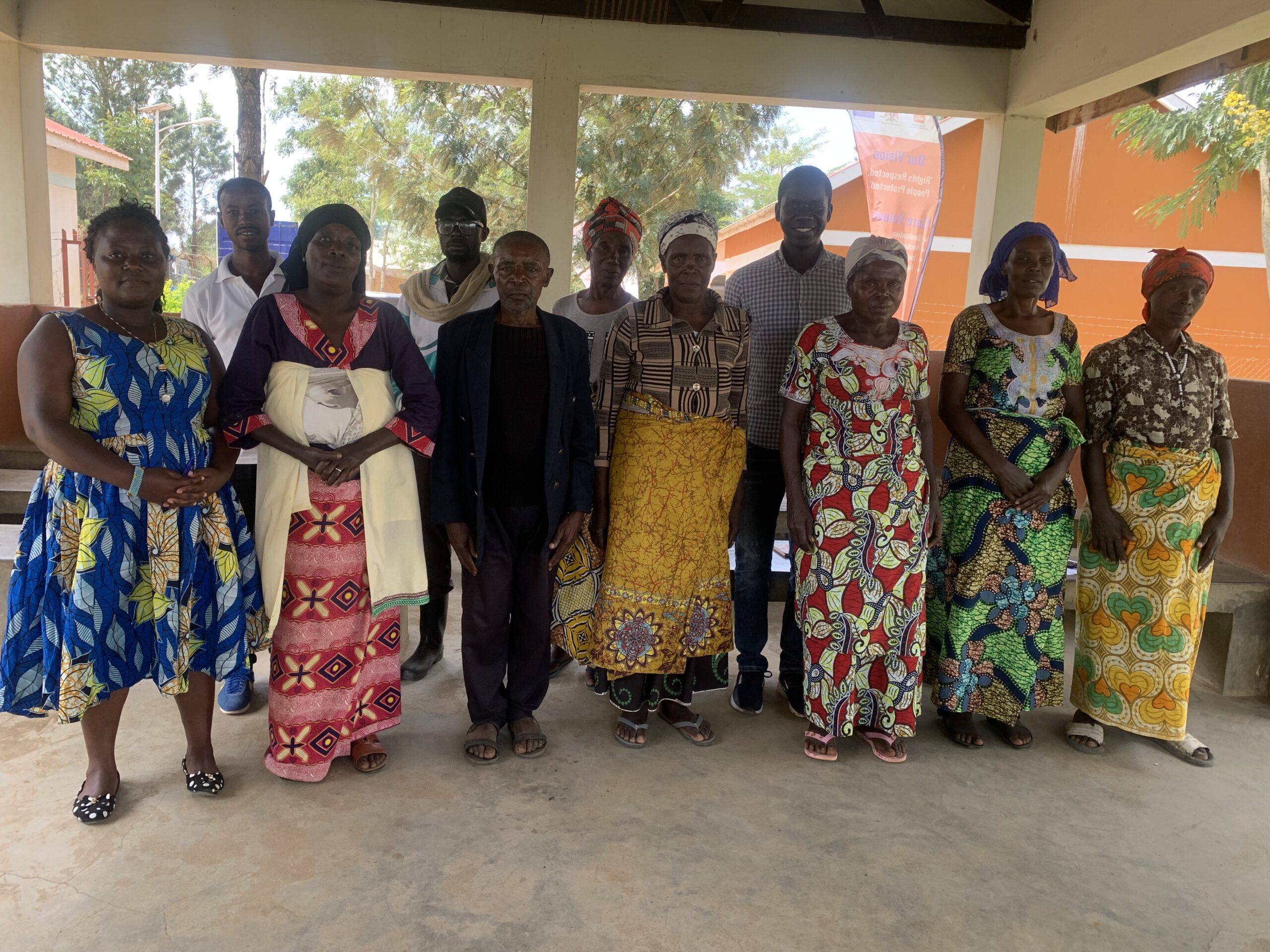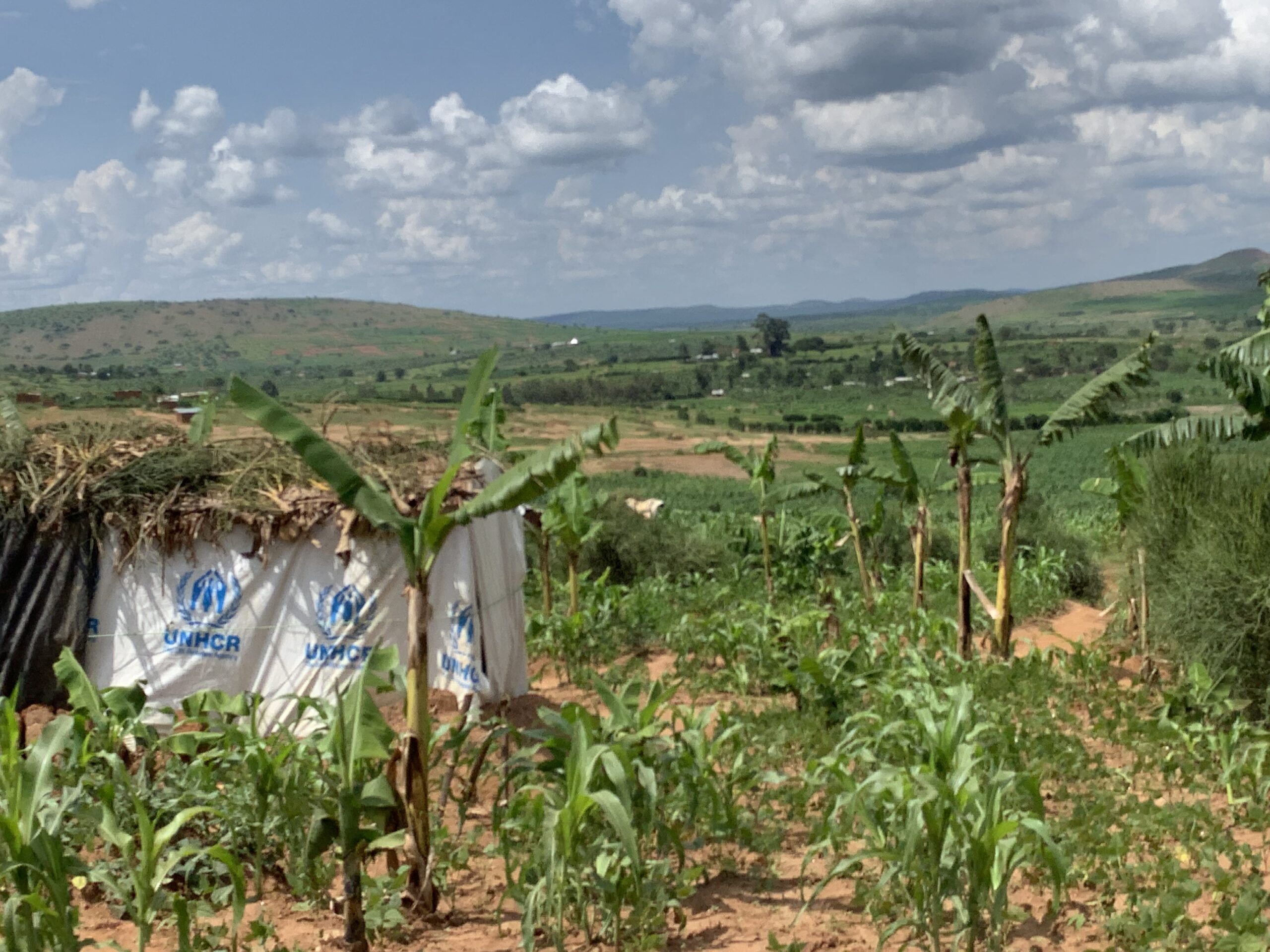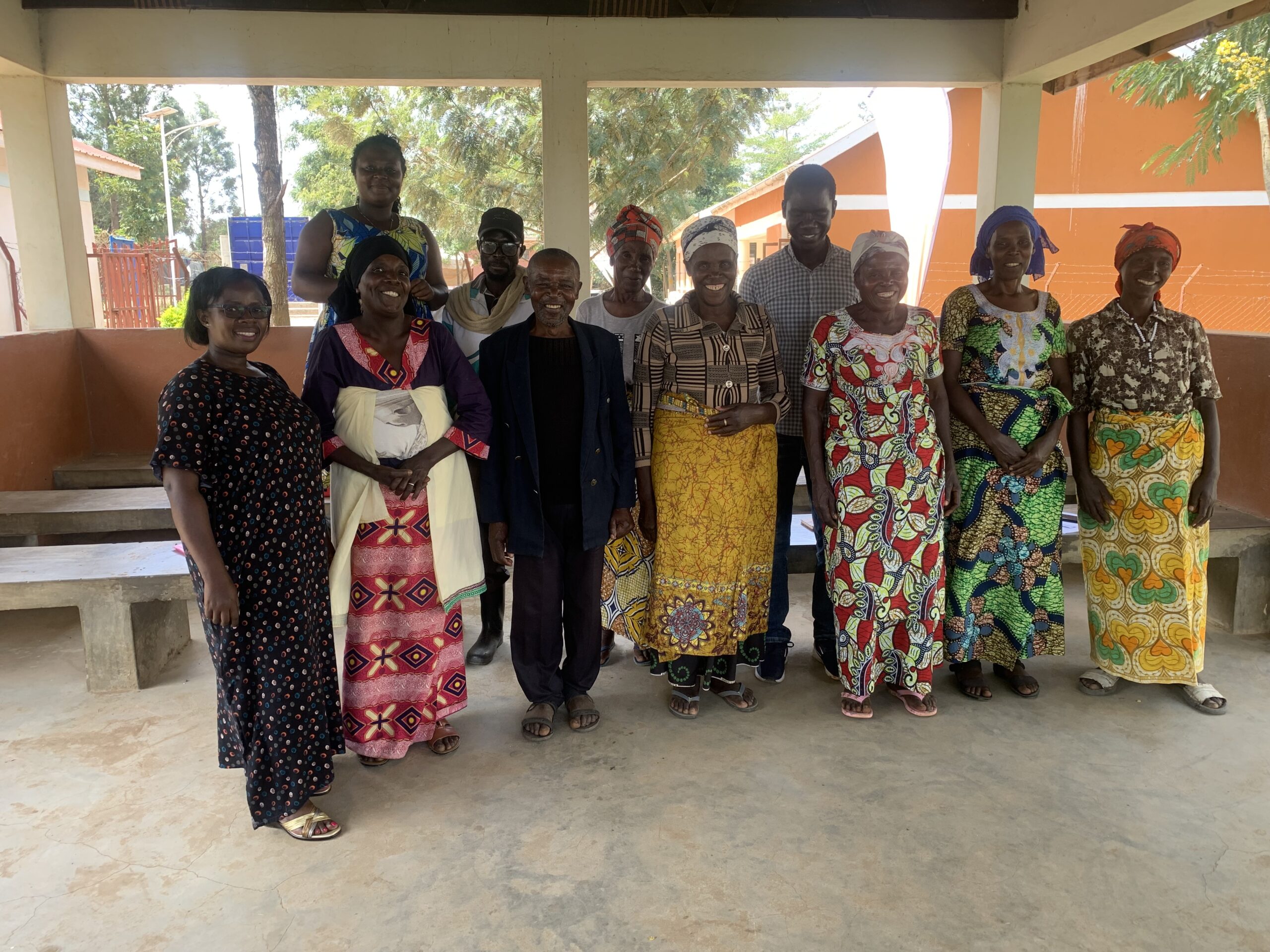ORIENTATION DAY

One by one the grandparents stepped into the shade of the Community Center and took a seat. It was an open-sided space, no more than a roof suspended on posts set deep into the soil, but it provided some relief from the heat.
Eight of the ten were women. They were dressed for the occasion in their very best clothes – an array of bright colors except for one of the two men, who was dressed all in black. They were all recent arrivals to the Nakivale Refugee Settlement and they did not know one another, so they sat in silence. Wary. Uncertain. The reserved expressions on their faces a sharp contrast to their festive clothing.
They were greeted as they came in by a young man with a big smile and a soft voice, who told them his name was Daniel Ocen Osako and that he was the Country Representative in Uganda for an organization called Focusing Initiatives International and also the Program Director for the project they had been recruited to be “grandparents” for – A Better World for Kids.
There were three other young people with Daniel. The energetic young man who had first recruited them and two young women with smiling faces.
The grandparents sat stiffly. Separate.
They had been told that they were chosen because they were known as storytellers. They were to tell their stories to the children of Nakivale. Children who had lost their families and hidden from soldiers in the forest and traveled long distances alone until they found their way to Nakivale. Angry children who threw rocks at the goats and sullen children who spoke to no one and attempted to be invisible. Hungry children who clung to you and smiled if you gave them something to eat, but would steal your lunch if you said no and turned your back.
“At risk” children the recruiter had called them. “Disrespectful” the grandparents thought them and wondered how such children could be expected to sit still to listen to stories about talking animals and hard working farmers and disobedient children. They glanced at the others. Maybe their stories were better.
After the tenth grandparent had arrived and taken a seat, Daniel introduced the three young people as team members who would support them all on the project.
The elderly people before him had been told they were recruited for their stories, and of course this was true. That was why there were so many women. Grandmothers always have many stories to tell.
But they had also been chosen because they were as “at risk” as the children.
These people, too, had been separated from their families. Their lives had been disrupted by warfare and disease and political repression. They had been forced out of the villages where they had anticipated their final years to be a time of respect – a time when they would be valued by their communities as human reservoirs of local knowledge about planting seasons and soil preparation and survival during periodic droughts and floods. All that precious knowledge was useless here in this great valley filled with scattered tents and makeshift homes and small gardens that made up the Nakivale settlements. Here they lived in isolation or with families desperate to survive in an unfamiliar environment, their elderly relations a burdensome responsibility – an extra mouth to feed with little to contribute.

Daniel smiled at them and told them that they were to become a valuable force in the lives of Nakivale’s children.
The elders had many questions. “How are we to find children to tell our stories to?” “How will we persuade the children’s parents to believe we are not kidnappers planning to steal their children and send them off to become soldiers?” “What if the children become rowdy and refuse to listen?
Daniel told them that the same young man who had recruited them was now recruiting children. That respected community leaders and government officials were encouraging parents and caregivers to enroll their children in the program. And that the two young women here with him would be attending each story telling session to supervise the children and support the grandparents.
All the grandparents needed to do was tell their stories and talk with the children afterwards.
As they asked their questions and listened to the answers, the grandparents began to relax. They began to smile and nod at one another as they heard others voicing their own concerns, and they nodded again when Daniel’s answers reassured them. This seemed like something they could do.
The next step, they were told, would be to meet with Daniel and the young women to describe their stories and make sure that the stories they told would suit the needs of the children. That way the grandparents could be sure that their stories would not frighten the children or upset them by reminding them of all the bad things they had been through. And the grandparents would be taught special listening skills to prepare them for the discussion sessions afterwards about the stories.
The smiles got broader and the nods happier. The man dressed in black called out, “I know hundreds of stories and have had no one to tell them to!”
When the meeting ended, the grandparents left in small groups, chatting together, happy to make new friends and excited to begin this new adventure.
